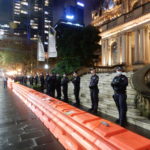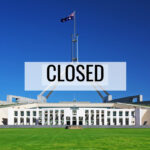COVID Vaccine Will Be ‘As Mandatory As Possible’

Prime Minister Scott Morrison sent the chills through millions of Australians this week when he declared that ‘when’ the Covid-19 Vaccine arrives, it will be ‘as ‘mandatory as possible’; although he seems to have since backed down in the face of a public backlash.
The Morrison Government says it has made a ‘landmark agreement’ with drug giant AstraZeneca to manufacture one of the world’s most promising coronavirus vaccines currently being developed. The project is a collaboration between the company and Oxford University researchers.
If it’s proved safe to use, the Prime Minister believes the agreement will ensure Australia will be among the first countries in the world to secure the jab, suggesting it could be available to Aussies as soon as early next year.
The UK Government has already ordered 100 million doses. Australia is also involved in negotiations on behalf of some of our close Asian neighbours.
But the word ‘mandatory’ has a lot of people concerned.
What about personal choice?
Let’s be clear, this is not an anti-vax debate, it’s about freedom of personal choice. And what people put into their bodies is indeed a personal choice.
Not only are many people concerned the vaccine is being rushed through with insufficient consideration for potential longer term effects, there are also concerns about its effectiveness with some scientists suggesting that annual ‘booster’ shots may be required for it to be completely effective.
The PM has already stated that the vaccine ‘needs to get to about 95% of the population’, suggesting he will do what he can to make it ‘as mandatory as possible’ – which has many fearing that the freedoms of those who refuse the vaccine for personal, health, religious or any other reason will be prohibited from engaging in certain activity, just as it is now mandatory to register your personal details when entering a restaurant or pub.
‘No Jab No Play’
To put this in context, it should be remembered that Scott Morrison was one of the figureheads behind the ‘No Jab, No Play’ legislation which initially proposed that parents would lose their child care benefits and rebates, as well as their end of year Family Tax Benefit, if their children were not fully immunised or on a catch-up immunisation schedule and wanted to enrol in daycare or kindergarten.
The scheme also sought to impose fines on childcare centres that admit unvaccinated children.
Various, albeit diluted, versions of the scheme were quickly adopted by the States. New South Wales, Queensland and Victoria enacted laws in 2017 which led to an immediate, although small, rise in immunisation rates. Laws in line with the scheme were adopted in Western Australia in 2018 and South Australia in early 2020.
The idea behind ‘No Jab No Play’ is to improve vaccine rates and stop the spread of disease, but what followed was a heated debate by concerned parents regarding their right to choose for their own children.
Australia’s move towards authoritarianism
Perhaps of the greatest concern is the move towards authoritarianism being the accepted as the norm in Australia, as authorities ‘capitalise’ on the public fear of the virus.
Parliaments have closed allowing politicians to pass sweeping and poorly thought out Public Health Orders without consultation or debate, police have been given unprecedented powers to deal with members of the public, individual movement and freedom of association has been severely restricted, protests have been all-but shut down; including where people remain in their cars and wear masks.
Many of these moves can be seen as more about silencing dissent and controlling the public then stopping the spread of the virus, and there is a strong argument that the rule of law is being severely undermined under the guise of – in this case – protecting the public against the virus, rather than protecting us against terrorists, as it previously was.
Use of rhetoric
Already the political (and mainstream media) rhetoric around the vaccine is that it ‘holds the key for life returning to normal’, implying that if we don’t all actually have the vaccine then the nation’s borders will remain closed, travel will be limited and we’ll continue to face tough social restrictions. The veiled threat is in place … and right now people are tired of the status quo.
There’s no doubt most of us right now would like nothing more than to see Australia ‘back to normal’ with lockdowns over, cafes open and face masks removed. Thousands of people would love to be able to see and spend time with their loved ones, travel interstate, get married, go to music festivals – to simply enjoy life the way it used to be – and, as such, many people would consider any and all options in order to make that possible.
But without a Bill of Rights, there are limited protections in place for Australians’ rights under the law, and no safeguards to ensure that laws and policies are consistent with human rights standards.
Creeping control
It is a concern that we as a population, will simply get used to this current level of control – being told what to do with the promise that in doing so, the immediate threat of the virus will pass and then we can continue to go about our lives.
And while there is no question that Governments must do what they can to control the spread of public infection, protect the health system and the wider economy at this time, there has been a marked erosion of democracy over the past several months as it has approached the task.
As time goes on, the danger is that people barely notice this slow erosion – as has been the case with many laws introduced under the guise of national security since the September 2001 terrorist attacks in New York – and we end up with rules and regulations that chip away at our personal freedoms and rights which are the very basis of democracy.






